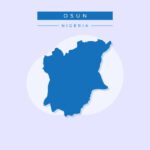
The FSTI Family Goal Setting Project is built on three core assumptions about families:
- Families are motivated by future goals: We believe that families, like individuals, are driven by a desire to achieve their aspirations and build a brighter future. This motivation serves as the fuel for their engagement in the goal setting process.
- Families are willing and able to engage in goal setting processes: We believe that families possess the inherent capacity and willingness to participate in setting and working towards their shared goals. This project seeks to provide them with the necessary tools and guidance to unlock this potential.
- Family goal setting processes and achievement are inherently constrained: We acknowledge that family goal setting and its subsequent achievement are not immune to challenges and limitations. These constraints can be internal (e.g., individual needs, personality differences) or external (e.g., limited resources, societal pressures). This project aims to equip families with strategies to navigate these constraints and maximize their success.
By understanding these core assumptions, we can create a program that empowers families to tap into their collective motivation, leverage their strengths, and navigate challenges on their journey towards achieving their desired future.
It is important to note that if you do not agree with these core assumptions, then the FSTI Family Goal Setting Project may not work in the manner it is designed to work. The project’s effectiveness is predicated on the alignment between its underlying philosophy and the participating families’ beliefs and motivations.
We encourage you to carefully consider these assumptions and determine if they resonate with your understanding of family dynamics and goal setting. If you have reservations about any of them, it may be helpful to explore alternative approaches that better align with your perspectives.





